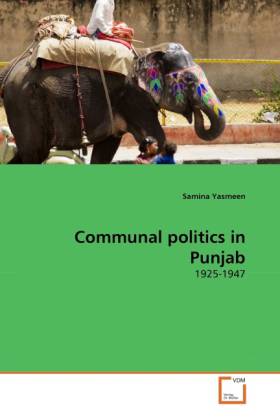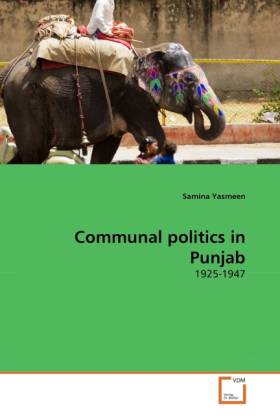
- Afhalen na 1 uur in een winkel met voorraad
- Gratis thuislevering in België vanaf € 30
- Ruim aanbod met 7 miljoen producten
- Afhalen na 1 uur in een winkel met voorraad
- Gratis thuislevering in België vanaf € 30
- Ruim aanbod met 7 miljoen producten
Zoeken
Omschrijving
In South Asia, the beginning of 20th century was marked by intense nationalists activities, but its momentum was comparatively slow in Punjab due to its socio-economic backwardness. Consequently anti-imperialist activities were merely sporadic and confined to limited circles of the society. So in the absence of strong national consciousness, nationalist organisations and political parties remained inactive and it became very easy for communal groups to divert the attention of masses from socio-economic and political realities to the communal issues such as distribution of jobs on the basis of their population strength and separate communal representation, etc. Thus, from the very beginning people in Punjab were mobilized on communal lines transforming the province into storm 'centre of communalism'. The purpose of this research is to examine the political developments in Punjab from 1925 1947, covering the impacts of various reforms brought about by the British Government and role played by different parties in heightening the communal tension.
Specificaties
Betrokkenen
- Auteur(s):
- Uitgeverij:
Inhoud
- Aantal bladzijden:
- 192
- Taal:
- Engels
Eigenschappen
- Productcode (EAN):
- 9783639372960
- Verschijningsdatum:
- 13/09/2011
- Uitvoering:
- Paperback
- Afmetingen:
- 150 mm x 220 mm
- Gewicht:
- 305 g

Alleen bij Standaard Boekhandel
+ 134 punten op je klantenkaart van Standaard Boekhandel
Beoordelingen
We publiceren alleen reviews die voldoen aan de voorwaarden voor reviews. Bekijk onze voorwaarden voor reviews.











